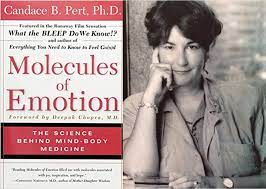
Back in high school, one of my favourite classes was “Anatomy and Physiology”. I think this was partly because our teacher clearly loved his subject. At every class, he would present the day’s material with energy and enthusiasm. He even loved the questions we asked, always finding a way to infuse them with wonder.
It must have been in this class that I first learned about neurotransmitters. In case you have forgotten, these are the chemical messengers within our brains that transmit information between neurons, or from neurons to muscles. They include substances like serotonin, dopamine, and acetylcholine, and they help regulate our appetite, sleep-wake cycle, and moods, among other things.
This system, as it was taught to us, was very brain focused. We were told that neurotransmitters were manufactured in our brains, and once excited, they started a process of change within our bodies. This change could be conscious or unconscious, but could only be stopped, or remedied, within the brain itself. Along with this thinking came a boom in the pharmacological industry, whereby drugs were used to either excite or inhibit naturally occurring neurotransmitters in our brains to better balance our moods.
What we students didn’t realize at the time, was that this framework was far too simplistic and was about to be turned on its head. The author of my book pick this month, Candace Pert, was one of the people who solidified this change in thought, when she discovered the opiate receptor for her Ph. D. thesis in 1973.
Finding the opiate receptor was just the beginning. For, once the opiate receptor was found, Pert and other scientists then began to map all the places in the body where opiate receptors were located. And to their surprise, they weren’t found only in the brain. They were also clustered, in large concentrations, in the immune system, the endocrine system, and the digestive system too.
What this means, is that the feelings of pleasure we get when we take opiate drugs, like heroin, don’t necessarily come from our brains. Cells all over our body can also activate the pleasure response. The top-down, brain-focused model of emotional regulation that I had learned in high school, and which had been taught to doctors throughout the world, turned out to be wrong, or at very least, incomplete.
After the opiate receptor was found, the race was on to find the natural substance within our bodies that attached to it. Because we always knew that opium was just a hack. There had to be something within our bodies that used the opium receptor and could also trigger those feelings of euphoria. And this magic substance turned out to be a simple chain of amino acids called peptides, which Pert began to call “molecules of emotion”. Molecules of Emotion also is the title of her book.
Personally, I found Molecules of Emotion to be a riveting read. And considering the number of weeks I had to wait to receive my copy from the local library, I’m not the only one. Pert is a great writer. Interspersed with her scientific findings, she tells us the story of her own life, relaying her struggle for recognition as one of the few women practising science in the 1970’s and 1980’s, her years as a young wife and mother, and the stress of staying relevant in a competitve, male-dominated world.
With humour, she also describes her reluctant evolution from strident research-based scientist into someone who could see the science within alternative medicine, and explain it to us without using all the “woo-woo” terms that can be a turn-off for many. By the time of her death in 2013, she was a regular and valued speaker at MindBody conferences around the world, and is still considered one of the founding leaders of MindBody medicine.
Fundamentally, what Candace Pert’s research taught us is that, yes, our brain does control our body, but our body also influences our brain. Those gut feelings, the tightness in your heart, those panic attacks – these are all signals your body is using to alert your brain that something is wrong. Using a top-down approach to the problem, by taking mood-altering drugs, may help. But you should also consider the environment in which your body is currently living. It may hold a greater key to your return to health than you previously thought.
About the Author: Rebecca Wong has a BA in English Literature from the University of Waterloo and has been working in the herbal business since 2000. She studied at the Ontario College of Traditional Chinese Medicine under respected authorities Paul Des Rosiers and Vu Le, and graduated from the East West School of Planetary Herbology under Michael Tierra. She received training as a yoga teacher at The Branches in Kitchener/Waterloo, and therapeutic yoga teacher training from the School for Somatic Soulwork under Deniz Aydoslu. She now teaches yoga for anxiety, depression and burnout at Rebecca's Restful Yoga Studio in Toronto.